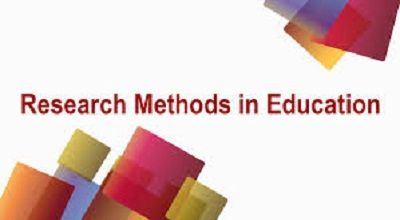Research Methods In Education
Research methods in education refer to the systematic processes and techniques used to investigate, gather, analyze, and interpret information related to educational issues. Conducting research in education helps educators, policymakers, and researchers gain insights into various aspects of the educational system, teaching and learning processes, and educational outcomes. Here is an overview of common research methods used in education:
Quantitative Research
- Surveys and Questionnaires: These involve collecting data from a large number of respondents through standardized questions. Surveys can be used to gather information about attitudes, opinions, behaviors, and demographics.
- Experiments: Experimental designs involve manipulating variables to observe their effects on educational outcomes. Randomized controlled trials (RCTs) are a common type of experimental design.
- Statistical Analysis: Quantitative researchers use statistical methods to analyze numerical data. Common statistical techniques include descriptive statistics, inferential statistics, regression analysis, and analysis of variance (ANOVA).
Qualitative Research
- Interviews: Researchers conduct in-depth interviews to explore the perspectives, experiences, and attitudes of participants. These interviews can be structured, semi-structured, or unstructured.
- Focus Groups: A group of participants is brought together to discuss and share their opinions on a specific topic. Focus groups are useful for exploring diverse viewpoints.
- Observation: Researchers observe and document behaviors, interactions, and settings in natural or controlled environments. Participant observation involves the researcher actively participating in the setting being studied.
- Case Studies: In-depth analysis of a particular individual, group, or situation is conducted to gain a comprehensive understanding of the subject.
Mixed Methods Research
- This approach combines both quantitative and qualitative research methods to provide a more comprehensive understanding of the research problem. Researchers collect and analyze both numerical data and narrative information.
- Researchers may use sequential designs (quantitative followed by qualitative or vice versa) or concurrent designs (simultaneous collection and analysis of both types of data).
Action Research
- This approach involves collaboration between researchers and practitioners, often educators, to identify and solve practical problems in real educational settings. The goal is to improve teaching practices and educational outcomes.
Ethnographic Research
- Ethnography involves in-depth study and description of a particular culture or social group. In education, ethnographic research may focus on understanding the culture of a school or classroom.
Historical Research
- Researchers study historical documents, records, and artifacts to understand past educational practices, policies, and trends. This type of research can provide insights into the evolution of educational systems.
Survey Research
- Surveys involve collecting data from a representative sample of participants using standardized questionnaires. This method is often used to gather information on a wide range of educational issues, including student attitudes, teacher practices, and school policies.
Longitudinal Research
- This involves studying a group of participants over an extended period to track changes and developments. Longitudinal research is valuable for understanding the long-term effects of educational interventions or experiences.
Content Analysis
- Researchers analyze written, visual, or audio content to identify patterns, themes, or trends. Content analysis can be used to study educational materials, media representations, or student work.
Experimental Research
- Experimental designs involve manipulating variables and measuring their effects on educational outcomes. Randomized controlled trials (RCTs) are a common experimental approach in education research.
Summary
When conducting education research, it is essential to carefully select the most appropriate method. Or a combination of methods based on the research questions, objectives, and nature of the phenomena under investigation. Researchers must also consider ethical considerations, data validity, and reliability throughout the research process.
